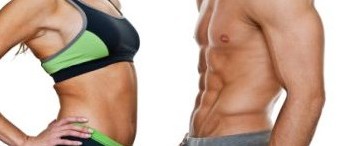
Click Here for Free Bodybuilding and Fitness Magazine Subscription
Calories and Fat Loss
Turn Your Body Into A Fat Burning Furnace With
New Ephedra Free Herbal Fat Melter
"Natural herbal extract burns fat faster and more effectively than many other products. You can be burning a tremendous amount of fat, while preserving your muscle tissue."
"I'm a fitness competitor (for approximately three years) and while taking the Herbal Fat Melter I did see some thinning out around my mid-section, stomach, legs, etc. and some of those stubborn areas. In an environment where everyone is selling herbal supplements and most don't do much at all, this product Herbal Fat Melter delivers especially by cutting the cravings. I was pleasantly surprised to see a positive effect on my energy within the first few use and it does provide all of the benefits. I'm seeing great results with this product."
CJ Daniels
Special Limited Bonus Offer
When you order you will also get two FREE bonuses (valued at $40!)
Bonus #1 - Fat Loss Manual, an easy to follow fat loss guide that gives you a day-by-day plan to make sure you are burning the maximum amount of fat possible.
Bonus #2 - Fat Loss Food Chart, a durable hand-folding guide of food quantities and values to assist in simplifying daily meal preparations.
For full details go to https://www.trulyhuge.com/herbgen.htm
You can also order Fat Melter by calling 800-635-8970 or 503-648-1898, 10 am to 6 pm PST
What Does Science Say About Calories and Fat Loss?

The process of losing weight can be confusing and frustrating, but one of the constants for just about everyone is that you need to take in less energy — calories — than you burn off throughout the day. And, while that sounds simple in concept, there are plenty of opinions about calories that can make it tough to decide what’s real and what’s just gym lore.
Luckily, science can help us zero in on some truths about calories if we’re willing to put in the time to find the evidence.
Here are a few of those nuggets to help you out on your fat loss journey.
How Far Do You Need to Reduce Calories?
One area of confusion is just how far you need to lower your calories in order to lose fat. Some advocate super low-calorie diets (well below 1500 a day), while others recommend a more moderate reduction.
A 2001 review out of the UK found that a 600-calorie reduction from baseline, on average, leads to better long-term fat-loss results than a sustained eating level of 1200 calories a day. The difference may be related to hormonal profiles or just the ability to stick with a given diet.
In another study, a researcher from the National Institutes of Health used statistical models to predict how much energy a pound of fat provides. That would also be the calorie deficit you need to burn a pound of fat, and it’s usually estimated at 3500 calories. This research found that, for people with more than 30 kg (about 65 pounds) of fat to lose, the rule of thumb is pretty close. For people who start leaner, though, it may not require quite as severe a deficit to lose that pound.
Is a Calorie a Calorie?
One of the biggest debates in fitness is just what is the best diet, in terms of calorie composition, for losing weight. Or does it even matter.
While some argue that “a calorie is a calorie,” others swear that low-fat, low-carbohydrate, high-protein, or another variant is superior to other setups. So what’s the truth?
A 2004 study out of the University of Wisconsin found that a high-protein OR low-carb diet produced better weight-loss results than a traditional low-fat diet.
Similarly, a 2014 study of nearly 150 subjects concluded that low-carb is superior for losing fat and getting healthier, but a 2015 study funded by the NIH found that low-fat is superior for losing fat.
A 2015 review out of the University of Florida examined 17 previous studies, and found that low-carbohydrate diets may help produce fat loss but that there generally is no significant difference between low-carb and low-fat when it comes to losing weight.
But, if you want to get deep into the science of energy burn, research from the State University of New York in 2004 argues that the Second Law of Thermodynamics dictates that you must consider nutrient content if you want your best fat-loss diet. In other words, a calorie is not a calorie.
Don’t Guess
The point of this discussion is not necessarily that science has all of the answers right now, but there is plenty of evidence available for all aspects of health and fitness, including how calories impact fat loss.
Take the time to discover the available facts, real facts, and you will find reaching your physique goals to be easier than ever before.

